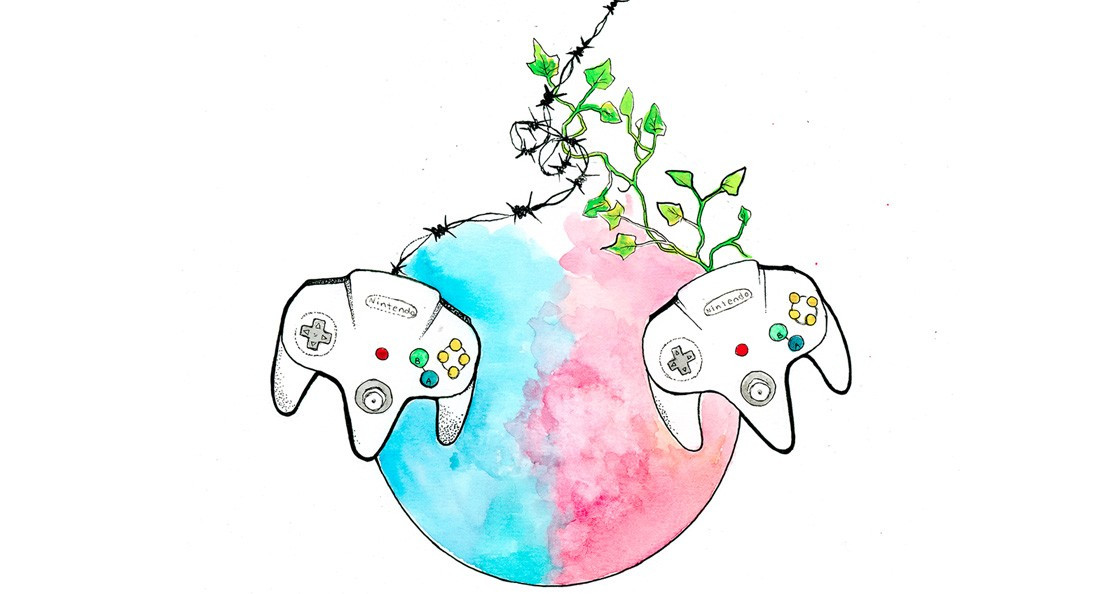Rewriting the code
How Winnipeg’s video game industry can learn from a high-profile case of abuse
Recent allegations of harassment and abuse in the gaming industry raise questions about how this reflects on Winnipeg’s local gaming industry and culture.
In a statement released on Twitter, indie game developer Zoë Quinn accused Winnipeg-based independent game developer Alec Holowka of abuse during their relationship. Quinn expressed solidarity with recent public allegations of sexual assault and abuse from various women and non-binary figures in the gaming industry.
Following the allegations, Holowka’s Night in the Woods co-designers Scott Benson and Bethany Hockenberry announced that they were cutting ties with Holowka.
On Aug. 31, Holowka died at the age of 35. Days after Holowka’s death, Benson published an article on Medium, describing his and Hockenberry’s complicated and tumultuous six-year working relationship with Holowka.
Local game developer and co-founder of Complex Games studio Adrian Cheater, who knew Holowka for more than 20 years, called the events that unfolded online her “worst nightmare.”
“I do not harbour anger towards the individuals involved, but rather towards the problems afflicting the gaming industry’s culture at large,” she says. She identifies these problems as “systematic issues in society,” such as “toxic masculinity, white supremacy, colonization and capitalism.”
The harassment of women and non-binary people in gaming is not new. The 2014 Gamergate controversy highlighted a turning point in how visible these issues were. The Gamergate hashtag and subsequent harassment campaigns originated with an identity crisis some gamers felt in the wake of those who called for a more progressive gaming industry.
Quinn was also at the epicentre of the controversy, with unfounded rumours about their past relationships resulting in Gamergaters being upset about ethics in gaming journalism. Cheater notes that Gamergate activists were notably “aligned with the reactionary movements like the men’s rights activists, rape apologists and the alt-right.”
Cheater said she understood how some people associated video games with a feeling of ownership.
“I get what it felt like to be bullied as a kid. Computer games weren’t cool. What I don’t get is excluding other people ... video games should be for everyone.”
As a game developer, Cheater says, “Gamergate was a wakeup call to recognize and change some of the most toxic aspects of the culture ... in order for the environment to change, the demographics need to change.”
She encourages other women or trans people to “take up space” in gaming culture. As well, Cheater is a mentor with local initiative Girls in Gaming, which aims to provide an introduction to video game development for girls, non-binary and trans youth.
Devon Streu and David Bosc, members of the University of Winnipeg Applied Computer Science Students Association, both recognized a lack of diversity in their program. They described University of Winnipeg’s ratios of gender diversity to University of Manitoba’s program. For women, trans and non-binary people, “it’d be like being only 1 out of 100, compared to 1 out of 1,000.”
They would both like to see more diverse representation in their program and suggest trying an intro course in computer science.
“It could be more useful in the long-term to students looking to fill up a science credit than, say, a physics course would, since it can be applied to so many fields,” Bosc says.
Jocelyn Mallette is an enjoyer of video games, as well as a community organizer and local trans activist from Treaty
1 territory.
Published in Volume 74, Number 2 of The Uniter (September 12, 2019)






